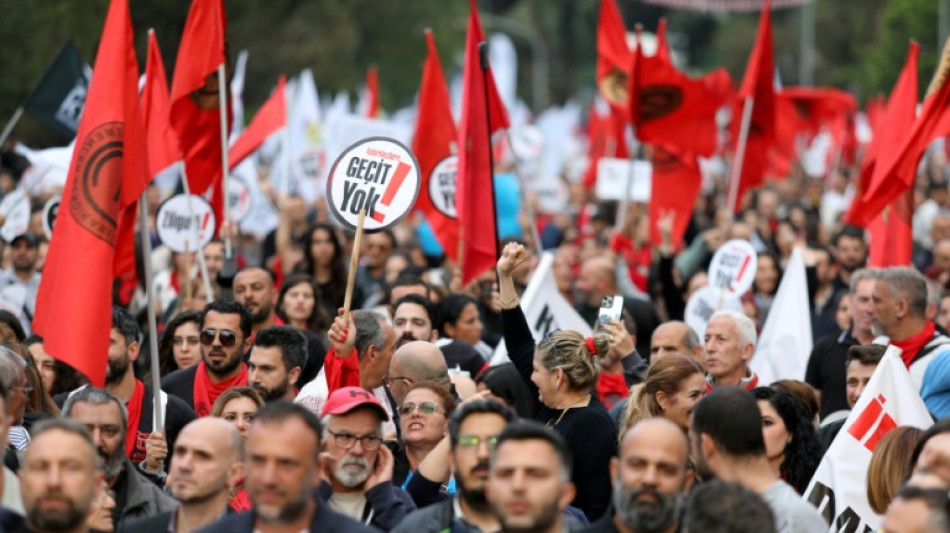
-
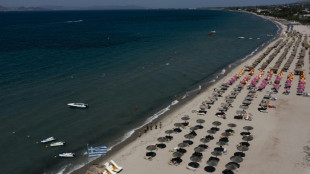 Greece set new tourism record in 2025
Greece set new tourism record in 2025
-
Zelensky says Ukraine unbroken after 4 years, but Russia vows to fight on
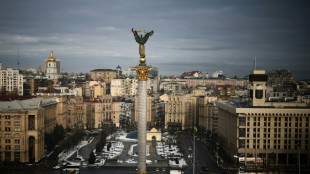
-
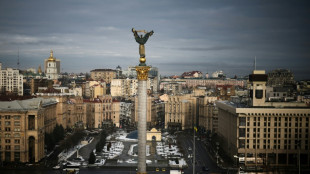 Zelenksy says Ukraine unbroken after 4 years, but Russia vows to fight on
Zelenksy says Ukraine unbroken after 4 years, but Russia vows to fight on
-
Snoop Dogg 'can't wait' for first Swansea visit
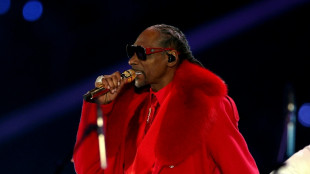
-
 Stocks fluctuate as traders assess AI fallout, tariffs
Stocks fluctuate as traders assess AI fallout, tariffs
-
Post-it maker 3M faces Belgian trial over 'forever' chemicals

-
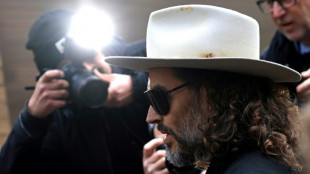 UK comedian Russell Brand pleads not guilty to new rape, assault charges
UK comedian Russell Brand pleads not guilty to new rape, assault charges
-
Duterte drew up 'death lists', boasted about murders: ICC prosecutor
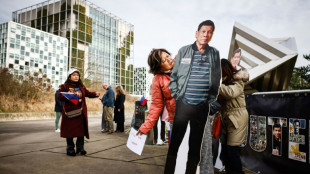
-
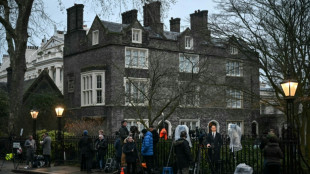 UK govt urged to release documents linked to ex-prince Andrew
UK govt urged to release documents linked to ex-prince Andrew
-
Rights group slams treatment of viral Japanese monkey

-
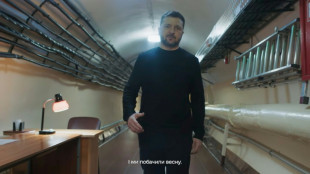 Inside the bunker where Zelensky led response to Russian invasion
Inside the bunker where Zelensky led response to Russian invasion
-
France demands explanation from US envoy over 'surprise' no-show
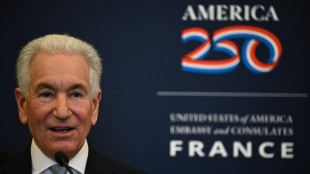
-
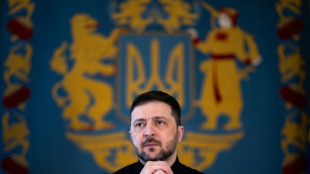 Putin failed to achieve goals in Ukraine, Zelensky says on war anniversary
Putin failed to achieve goals in Ukraine, Zelensky says on war anniversary
-
China tightens Japanese trade restrictions as spat worsens
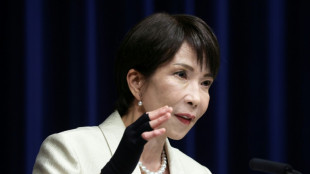
-
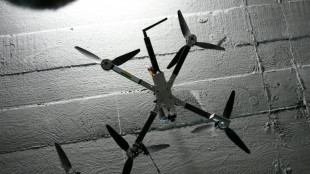 Ukraine war exhibition opens at Berlin Nazi bunker museum
Ukraine war exhibition opens at Berlin Nazi bunker museum
-
Jihadist threat puts eastern Senegal on edge
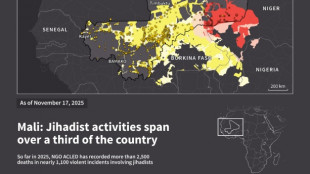
-
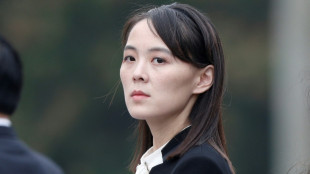 Kim Yo Jong: the powerful sister behind North Korea's supreme leader
Kim Yo Jong: the powerful sister behind North Korea's supreme leader
-
North Korea ruling party promotes Kim Jong Un's younger sister
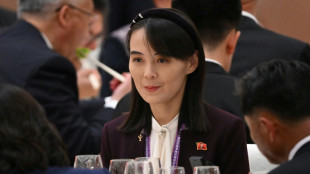
-
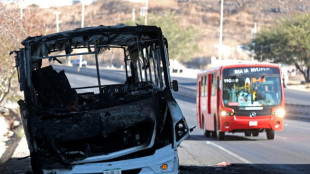 Mexico's Jalisco cautiously tries returning to normal after cartel violence
Mexico's Jalisco cautiously tries returning to normal after cartel violence
-
Mexico's violence-hit Guadalajara to host World Cup games
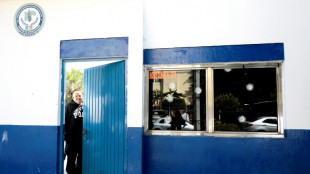
-
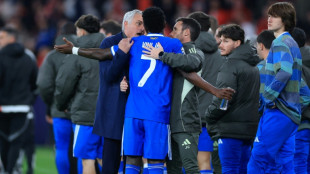 Mourinho's Bernabeu homecoming upended by suspension, racism row
Mourinho's Bernabeu homecoming upended by suspension, racism row
-
China targets Japanese companies over military ties
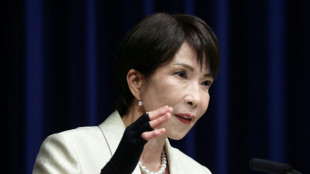
-
 Griezmann in talks to join MLS side Orlando City: source
Griezmann in talks to join MLS side Orlando City: source
-
France to revoke US envoy's govt access after summons no-show
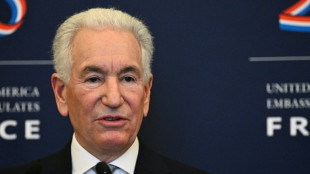
-
 Spurs overpower Pistons in clash of NBA's form teams
Spurs overpower Pistons in clash of NBA's form teams
-
Inoue to fight Nakatani in Tokyo in May: reports
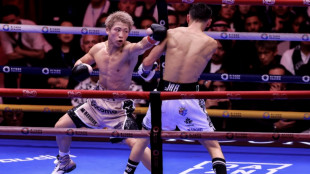
-
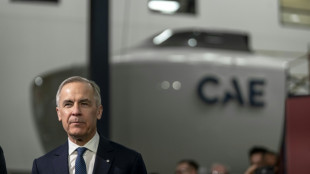 Canada PM to push trade, rebuild fractured ties in India trip
Canada PM to push trade, rebuild fractured ties in India trip
-
Asian markets mixed as traders weigh AI and tariffs outlook

-
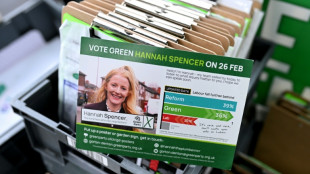 Votes may 'melt like snow': Reform, Greens eye Labour UK bastion
Votes may 'melt like snow': Reform, Greens eye Labour UK bastion
-
Venezuela says exiles welcome to return following mass amnesty
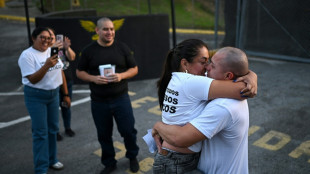
-
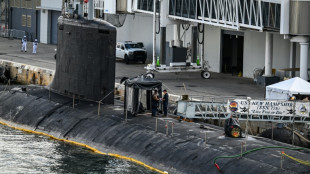 Australia buys parts for future AUKUS sub reactor
Australia buys parts for future AUKUS sub reactor
-
Ukraine marks four years since Russian invasion
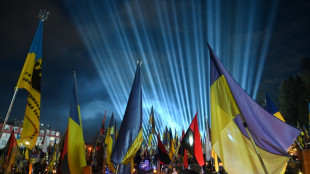
-
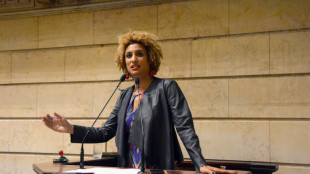 Brazil court to try politicians over hit on black councilwoman
Brazil court to try politicians over hit on black councilwoman
-
Interim president says Venezuelans welcome to return after amnesty law
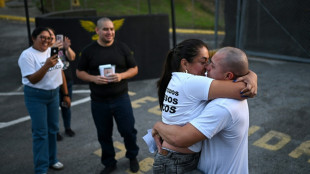
-
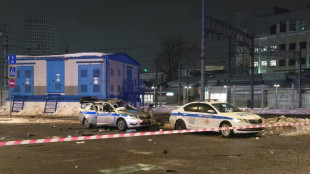 Man kills police officer in Moscow train station blast
Man kills police officer in Moscow train station blast
-
Despite drop in 2025, Russian oil exports exceed pre-war volumes: report

-
 ARIA Cybersecurity Announces Major Oil Refiner Deploys AZT PROTECT(TM)
ARIA Cybersecurity Announces Major Oil Refiner Deploys AZT PROTECT(TM)
-
Greene Concepts Announces Major Be Water Expansion in Walmart Stores Across the Southeast

-
 Fuse Battery Announces Amended Subscription Receipt Financing Details
Fuse Battery Announces Amended Subscription Receipt Financing Details
-
Lightwave Logic, Inc. Provides Update on Commercial Pipeline and Announces Timing of Fourth Quarter and Full Year 2025 Earnings Call

-
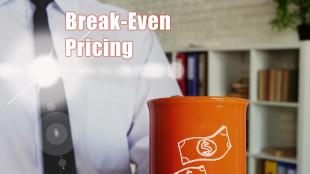 Unlearn Advances Huntington's Disease AI Modeling Through Access to CHDI Foundation Data
Unlearn Advances Huntington's Disease AI Modeling Through Access to CHDI Foundation Data
-
Protagonist Therapeutics to Participate in Multiple Investment Bank Conferences in March 2026

-
 Specificity (OTCID:SPTY) to Present on the Emerging Growth Conference on February 26th, 2026.
Specificity (OTCID:SPTY) to Present on the Emerging Growth Conference on February 26th, 2026.
-
Havertys Reports Operating Results for Fourth Quarter 2025

-
 Viemed Healthcare Announces Year End 2025 Earnings Conference Call Details
Viemed Healthcare Announces Year End 2025 Earnings Conference Call Details
-
Galway Metals Drilling Intersects 9.0 g/t Gold Over 6.0m Beginning 15.0m from Surface at Southwest Deposit

-
 PeanutButterJelly Expands Affiliate Marketplace From 15 to 40 Affiliate Merchants; Website Sessions Rise 70%; Launches Conversion and Growth Optimization Plan
PeanutButterJelly Expands Affiliate Marketplace From 15 to 40 Affiliate Merchants; Website Sessions Rise 70%; Launches Conversion and Growth Optimization Plan
-
Digipower X Announces Uplisting to Cboe Canada

-
 Jaguar Mining Provides Update on Geologic Interpretation at the Chamé Gold Exploration Target, Brazil
Jaguar Mining Provides Update on Geologic Interpretation at the Chamé Gold Exploration Target, Brazil
-
Electrovaya Receives $10.5 Million P.O from Fortune 500 Customer


Turkish Cypriots protest new rule allowing hijab in school
Several thousand Turkish Cypriots marched on Friday to protest a new regulation allowing pupils to wear Islamic headscarves in secondary schools, a move critics say threatens the community's secular traditions.
The rule, introduced in March in the breakaway Turkish Republic of Northern Cyprus -- recognised only by Turkey -- amended the school disciplinary code to explicitly permit headscarves in high schools. Middle schools were left to adopt the rule at their own discretion.
"This is a religious symbol. A child under the age of 18 cannot make this decision with their own free will, in my opinion," said Dila Ensari, 15, who attended the rally with her mother, a public school teacher.
The government's decision followed an incident in which an eighth-grade girl in Nicosia was reportedly barred from school because she was wearing a hijab. In a video that quickly went viral, the student, dressed in a blue headscarf, and her father are seen outside the school gates arguing with staff, while other students file in.
The backlash to the regulation was swift. Educators, trade unions and opposition leaders condemned the move as an erosion of long-held secular traditions and a politicisation of the education system.
"They say they want to legitimise hijabs at school, but we know this won't stop here," said Sara, a 30-year-old teacher who declined to give her full name for fear of repercussions.
"We are for secular education. If one of my students wants to wear a hijab after 18, I'll be here protesting for her right to do so."
Burak Mavis, head of the Cyprus Turkish Teachers' Trade Union, echoed that concern.
"Granting exceptions to religious symbols in public schools is a practice that is contrary to secularism and also threatens the development of children," he told AFP before the rally.
Turkish Cypriot leader Ersin Tatar defended the new regulation, saying it protects students from discrimination.
"In this country, there are those who have religious beliefs and those who do not. There are those who go to mosques and those who do not. These are personal choices," he told a morning talk show last month.
Although overwhelmingly Muslim, Turkish Cypriots largely identify as secular.
Hijabs are rarely worn, many consume alcohol and more devout individuals tend to observe their religious practices in private.
"Most Turkish Cypriots don't practise religion publicly, and if they do, they want to keep it in the private sphere. There's never been a push to bring religious symbols into public life," said Umut Bozkurt, a political scientist at Eastern Mediterranean University.
Many residents draw a clear distinction between themselves and migrants from mainland Turkey -- who by some estimates now outnumber the Turkish Cypriot population -- and are often seen as more religious and conservative.
- 'Different culture' -
For many, the headscarf regulation is seen as the latest example of Ankara's growing influence in the north.
"They see it as a threat to their relative autonomy from Turkey," Bozkurt said.
Turkey still maintains a substantial military presence in northern Cyprus decades after its 1974 invasion and exercises huge influence over the breakaway administration.
"We love Turkey, (but) our culture is different," said Ahmet Serdaroglu, head of the Kamu-Is trade union.
"I am Muslim — praise be to God... but I don't have to cover my baby's head" to prove it.
Under the amended policy, headscarves must be of one colour and consistent with school uniforms. Officials say the regulation is about fairness, not religious imposition.
In secondary schools in the two-thirds of Cyprus controlled by the internationally recognised government, pupils may wear headscarves and other religious attire, although few Turkish Cypriots are enrolled in them.
The island has been divided along broadly communal lines since soon after Ankara occupied its northern third in 1974 in response to an Athens-engineered Greek Cypriot coup seeking union with Greece.
The debate mirrors past struggles in Turkey, where a 2013 decision to lift a longstanding ban on Islamic headscarves in public high schools was seen by secularists as a turning point.
Now, many Turkish Cypriots fear they are on the same path.
G.Stevens--AMWN



